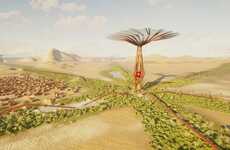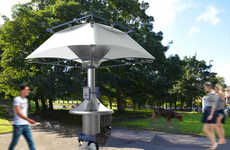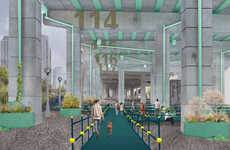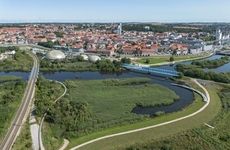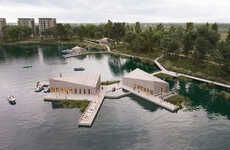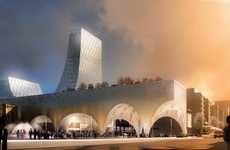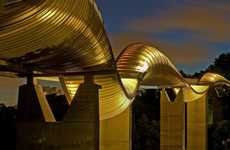
This Subnature New York Proposal Accrues Clean Water
Amelia Roblin — September 2, 2011 — Eco
References: crisisfronts.org & suckerpunchdaily
The sad truth is that even the "untouched" landscapes that surround cities are rarely as unsullied as they seem. One of the many issues that stems from this fact is that sources of clean water for consumption are virtually evaporating.
This Subnature New York project proposes a marriage of architecture and landscape architecture to build the earth a second skin. Designers Carla Lores and Michael Yarinsky have conceived this inventive porous pavilion that molds additional hills and valleys into the countryside. It will collect and trap rainwater on higher ground before it sinks down into contaminated soil.
Planned to be constructed near the town of Carmel within the Croton Watershed, Subnature New York concept would foster another layer of lush grasses, greenery and sun-kissed cavernous spaces to enhance the organic environment for man and nature alike.
This Subnature New York project proposes a marriage of architecture and landscape architecture to build the earth a second skin. Designers Carla Lores and Michael Yarinsky have conceived this inventive porous pavilion that molds additional hills and valleys into the countryside. It will collect and trap rainwater on higher ground before it sinks down into contaminated soil.
Planned to be constructed near the town of Carmel within the Croton Watershed, Subnature New York concept would foster another layer of lush grasses, greenery and sun-kissed cavernous spaces to enhance the organic environment for man and nature alike.
Trend Themes
1. Porous Pavilions - Designing porous pavilions to collect and trap rainwater offers an innovative solution for addressing water scarcity.
2. Architectural Innovation - Exploring the marriage of architecture and landscape architecture opens up opportunities for creating sustainable structures that benefit both humans and the environment.
3. Urban Water Management - Developing strategies for managing water resources in urban areas is crucial for ensuring a sustainable future.
Industry Implications
1. Architecture - The architecture industry can embrace the concept of porous pavilions to design innovative structures that address environmental challenges.
2. Landscape Architecture - The landscape architecture industry can explore new approaches to integrating sustainable design principles into outdoor spaces.
3. Water Management - The water management industry can utilize architectural innovation to develop effective strategies for conserving and utilizing water resources in urban environments.
3.2
Score
Popularity
Activity
Freshness


